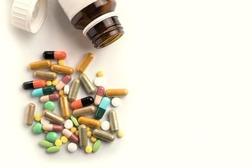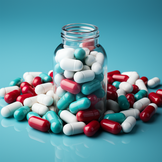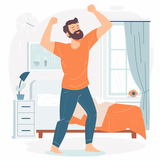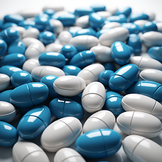Does Drinking Water Help Erectile Dysfunction? Myth vs Science
- What Is Erectile Dysfunction (ED)?
- Scientific Evidence vs. YouTube Myths About Water for ED
- Importance of Professional Medical Consultation for Erectile Dysfunction Treatment
- Understanding the Causes of Erectile Dysfunction
- The Importance of Hydration and Overall Health
- Does Drinking Water Help With Erectile Dysfunction or Dehydration-Related ED?
- Conclusion: Balancing Hydration and Professional Treatment for Erectile Dysfunction

What Is Erectile Dysfunction (ED)?
Erectile dysfunction (ED) is a common condition affecting many men globally.It refers to the inability to get or maintain an erection firm enough for sexual intercourse.
occasional erectile dysfunction is common.
However, if it is a frequent issue, it could indicate a more severe underlying health concern that needs medical attention.
Scientific Evidence vs. YouTube Myths About Water for ED
The internet, especially platforms like YouTube, is rife with claims regarding quick-fix remedies for erectile dysfunction. While some of these suggestions may have some basis, it's crucial to discern the fact from the fiction. Several scientific studies focus on understanding erectile dysfunction, its causes, and potential remedies.
Many YouTube videos advocate for increased water consumption as a simple solution for erectile dysfunction. While staying hydrated is essential for overall health, there's no scientific evidence that drinking water directly improves erectile function.
Importance of Professional Medical Consultation for Erectile Dysfunction Treatment
Erectile dysfunction can be a symptom of underlying health issues like heart disease, diabetes, high cholesterol, high blood pressure, or even emotional disorders like anxiety and depression. Therefore, if you are suffering from erectile dysfunction, it's crucial to consult with a medical professional.
A healthcare provider can guide you through comprehensive diagnosis and treatment plans tailored to your health needs and lifestyle. They can also debunk myths and unsubstantiated claims that might lead to potential harm or unnecessary distress.
Understanding the Causes of Erectile Dysfunction
Erectile dysfunction can result from several causes. Physically, it can be due to heart disease, clogged blood vessels, high cholesterol, high blood pressure, diabetes, obesity, Parkinson's disease, multiple sclerosis, and more. Habits like tobacco use can also cause or exacerbate erectile dysfunction.
Psychological factors like stress, anxiety, depression, relationship problems, and other mental health conditions can also lead to erectile dysfunction. In many cases, it's a combination of physical and psychological factors.
The Importance of Hydration and Overall Health
Proper hydration is a cornerstone of good health. Drinking enough water helps regulate body temperature, lubricate joints, deliver nutrients to cells, and maintain overall bodily functions. In terms of men's health, staying hydrated supports kidney function, helps maintain healthy skin, and contributes to cardiovascular health.
When you become dehydrated, blood plasma volume decreases and blood becomes more viscous. This can lower blood pressure and reduce endothelial function—two factors that may hinder the inflow of blood required for an erection. Although rehydrating is not a standalone treatment, understanding this physiology explains why people often associate water intake with sexual performance.
While hydration is not a direct cure for erectile dysfunction, it supports overall health, which is essential for maintaining good sexual health. Dehydration can lead to fatigue, headaches, and impair cognitive function, all of which can indirectly affect sexual performance.
Does Drinking Water Help With Erectile Dysfunction or Dehydration-Related ED?
To directly address the question - "Water and erectile dysfunction - does drinking water help?" - it's crucial to note that while staying hydrated is a part of maintaining overall health, there is no scientific evidence directly linking water consumption to improved erectile function.(EAU 2023; NHS 2022)
As for how much water to drink, individual needs vary with climate, activity and health status. EU authorities recommend about 2.5 litres per day for men and 2.0 litres for women, while U.S. guidelines suggest 3.7 litres and 2.7 litres respectively. Aim for pale-yellow urine and regular hydration throughout the day rather than chasing an exact number (EFSA 2010; NASEM 2004).
Frequently Asked Questions
Can dehydration cause erectile dysfunction?
Severe dehydration can temporarily lower blood volume and blood pressure, which may make it harder to achieve or maintain an erection. Once you rehydrate, this effect usually resolves.
Does drinking more water boost testosterone?
Normal day-to-day hydration does not significantly alter testosterone levels in healthy men; no clinical trials show a direct rise in hormones from extra water alone.
How do I know if my ED is vascular or psychological?
A doctor can perform physical exams, blood tests and, if needed, a nocturnal penile tumescence test to distinguish between blood-flow issues and psychological causes.
What lifestyle changes really help?
Evidence-based strategies include regular exercise, weight management, quitting smoking, limiting alcohol, and treating conditions such as diabetes or hypertension.
Conclusion: Balancing Hydration and Professional Treatment for Erectile Dysfunction
In conclusion, while maintaining proper hydration is important for overall health, it should not be seen as a standalone treatment for erectile dysfunction. Instead, water intake should be a part of a balanced lifestyle, including a healthy diet, regular exercise, and professional medical consultation when needed.
If you or a loved one are experiencing erectile dysfunction, it's essential to consult with a healthcare professional. They can provide comprehensive guidance on dealing with the condition, which might include medication, lifestyle changes, or counseling. Don't fall for unsubstantiated claims online – always seek professional help when it comes to your health.



